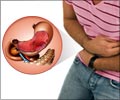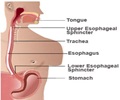People popping popular prescription heartburn drugs such as Prilosec, Prevacid and Nexium may be more prone to a potentially dangerous diarrhea caused by the bug Clostridium difficile, research says.
People popping popular prescription heartburn drugs such as Prilosec, Prevacid and Nexium may be more prone to a potentially dangerous diarrhea caused by the bug Clostridium difficile , research says.
C-diff, as it's known, can cause severe diarrhea and intestinal inflammation with cramps called colitis.Dr. Sandra Dial, with her colleagues at McGill University in Montreal, examined data on more than 18,000 patients in Britain from 1994 to 2004. During that time, 1,672 cases of C-diff were diagnosed, and the numbers increased from less than 1 per 100,000 in 1994 to 22 per 100,000 last year.
Millions of people worldwide take the drugs, called proton- pump inhibitors, to treat a condition known as gastroesophageal reflux disease, or GERD, which occurs when stomach acid flows into the esophagus, causing heartburn and ulcers. The drugs may be raising patients' risk of a severe bacterial infection that has increased quickly in frequency, Dr Dial said.
“These drugs may make it easier to become infected if you've already been exposed," she said in a presentation at the Interscience Conference on Antimicrobial Agents and Chemotherapy, a major infectious disease science meeting.
Patients who used powerful acid-fighters such as Prilosec and Prevacid, called proton pump inhibitors, to treat a condition known as were almost three times more likely to be diagnosed with the bug than those not taking the drugs.
Those who took less potent prescription drugs called H2 receptor antagonists, including Pepcid and Zantac, were twice as likely to get C-diff infections than non-users.
Advertisement
Dial's study appeared in the Journal of the American Medical Association.
Advertisement











